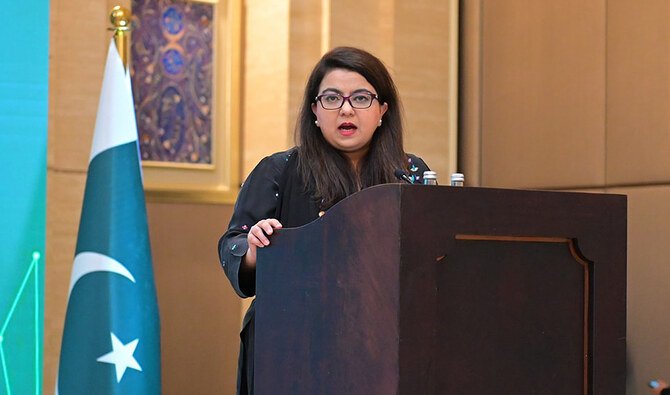
Minister of State for IT and Telecom, Shaza Fatima, held a press conference on Sunday where she addressed the widespread complaints of slow internet speeds across Pakistan. Contrary to speculations of an intentional slowdown by the government, the minister pointed to the increased use of Virtual Private Networks (VPNs) as the main culprit behind the sluggish connectivity. According to Shaza, the high volume of data being routed through remote servers via VPNs has led to significant delays in internet performance.
The minister stressed that the federal government has no intention of disrupting internet services and clarified that the slowdown is an unintended consequence of VPN overuse. She explained that while VPNs provide users with enhanced privacy and security, they also create bottlenecks in data transmission, leading to reduced internet speeds. As VPN usage has surged, particularly among those seeking to access restricted content or maintain anonymity online, the strain on Pakistan’s internet infrastructure has become increasingly evident.
Interestingly, Shaza Fatima did not offer any updates regarding the government’s proposed national firewall aimed at regulating social media. This omission comes amid growing public concern over potential restrictions on digital freedoms in the country.
In her remarks, the IT minister also took the opportunity to highlight the progress made in Pakistan’s IT sector during her tenure. She proudly announced that the country had achieved record-breaking IT export numbers, a testament to the talent and hard work of Pakistan’s youth. To sustain this momentum, the government plans to establish two new IT parks in Islamabad and Karachi, which will serve as innovation hubs for both emerging startups and established tech companies.
Moreover, Shaza Fatima unveiled a series of initiatives aimed at bolstering digital skills and employment opportunities. Among these is the launch of 250 e-employment centers nationwide, which will offer training programs in various digital disciplines. In a bid to foster early interest in technology, the government also plans to introduce coding lessons in five languages at the primary school level, ensuring that children develop essential skills from a young age.
The minister outlined the government’s broader digital infrastructure plans, including the nationwide rollout of 5G technology. This ambitious project will be supported by the installation of four new undersea internet cables, which are expected to enhance connectivity and increase data transmission speeds. Additionally, the government is working on a virtual production studio to support the creative and media sectors.
Further emphasizing the government’s commitment to digital transformation, Shaza Fatima discussed ongoing efforts to modernize national databases, particularly through the National Database and Regulatory Authority (NADRA). She announced the implementation of QR codes at over one million locations across Pakistan, a move intended to simplify payment processes and improve tax collection mechanisms. The minister expressed confidence that these digital initiatives would play a crucial role in driving economic growth and improving citizens’ quality of life.
While the minister’s announcements reflect a forward-thinking approach to digital development, the issue of slow internet speeds remains a pressing concern for many. The interplay between VPN use, government policies, and the evolving digital landscape will continue to shape the discourse around internet freedom and accessibility in Pakistan.
